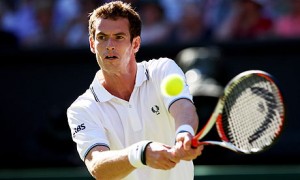Thompson defends BBC’s sports rights strategy
July 19, 2012
By Colin Mann
 Mark Thompson, the outgoing Director General of the BBC, has chosen the occasion of the corporation’s success in winning broadcast and digital rights to the next four Olympic Games – two winter and two summer games – to defend its strategy in respect of sports rights.
Mark Thompson, the outgoing Director General of the BBC, has chosen the occasion of the corporation’s success in winning broadcast and digital rights to the next four Olympic Games – two winter and two summer games – to defend its strategy in respect of sports rights.
Writing in a BBC blog, Thompson said the BBC had rights arrangements which stretched out for many years and which guaranteed that sport would continue to be a central part of the diet of licence-payers across BBC Television, Radio and Online.
He suggested that “much nonsense” had been written about the modern BBC and sport, and wished to set the record straight.
“First, we know that the public care passionately about sport on the BBC. Given the option, they overwhelmingly choose to watch sport on our services rather than on those of our rivals: the recent final of Euro 2012 in which the coverage on BBC1 gained six times more viewers than that on ITV1 is a good case in point. BBC Television currently shows just two per cent of the hours of TV sport broadcast in the UK but that two per cent represents over 40 per cent of the hours actually consumed by the public. That’s far more than any other broadcaster, including BSkyB. And when we have a sporting moment of national importance – think of England v Italy in the Euros, or Murray v Federer at Wimbledon – they turn to us in their tens of millions,” he said.
“Second, we take our responsibility to meet that public expectation very seriously. People sometimes argue that sport is so widely available on British television that there is no longer an argument for the BBC using the licence fee to pay for sports rights. I couldn’t disagree more. For decades, the public have valued the unique way the BBC covers sport: its technical professionalism, the quality of its commentary and analysis, the absence of interruptions for commercials. In recent years, we’ve backed up that traditional distinctiveness with a new burst of innovation both in linear coverage and via the BBC Sport website,” he claimed.
He acknowledged that in common with most other public organisations, the BBC was having to live within a tight budget, but described those who claimed that Delivering Quality First meant that the BBC was turning its back on sport as “very wide of the mark”. Like virtually every other kind of output, sport has had to face some unpalatable choices. We have relinquished our remaining television commitments to horse-racing and successfully renegotiated our Formula One rights to create a sharing arrangement with Sky; although it is clearly not as attractive as retaining exclusive rights, this latter deal has kept half the races live on the BBC, broadly maintained the reach of our Formula One coverage and will save us more than £150 million over the lifetime of the contract – a significant contribution to our savings targets,” he explained.
He noted that the BBC had always played a major role in broadcasting sport on the radio, and would continue to do so through long term deals covering all the major sports, including the iconic Test Match Special and the Ryder Cup.
“Wherever possible, we’ve tried to keep the costs of renewal down: compare the recent near-flat renewal of Premier League highlights (now including BBC iPlayer rights) with the reported 70 per cent increase in the live rights. But we always intended to protect the core of our rights portfolio and we set aside enough money to do so. To give you an idea of scale, our annual financial commitment to sport will remain broadly in line with our annual budget domestic network news and current affairs,” he revealed.
He said that it was gratifying that the Olympics announcement saw the BBC’s strategy coming to fruition, and that on the eve of BBC Sport beginning coverage of the single most important sporting event in the history of the BBC, people connected with BBC Sport were heading into the 2012 Games knowing that, notwithstanding the doom-mongers, that sport was “here to stay on the BBC, not for a year or two, but for the long term”.
